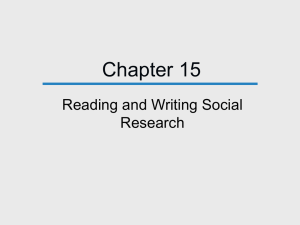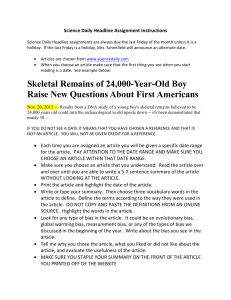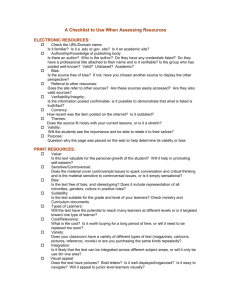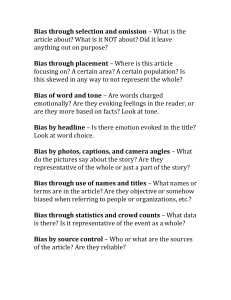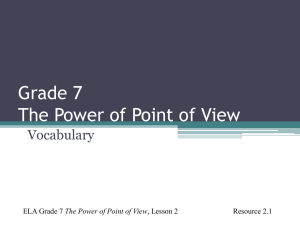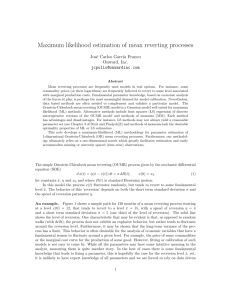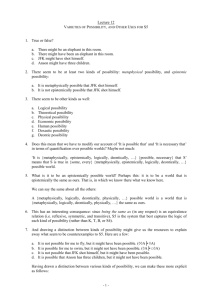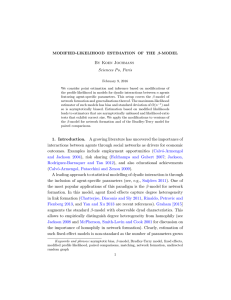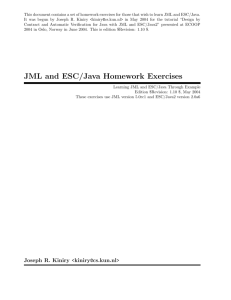Abstract - PhilPapers
advertisement
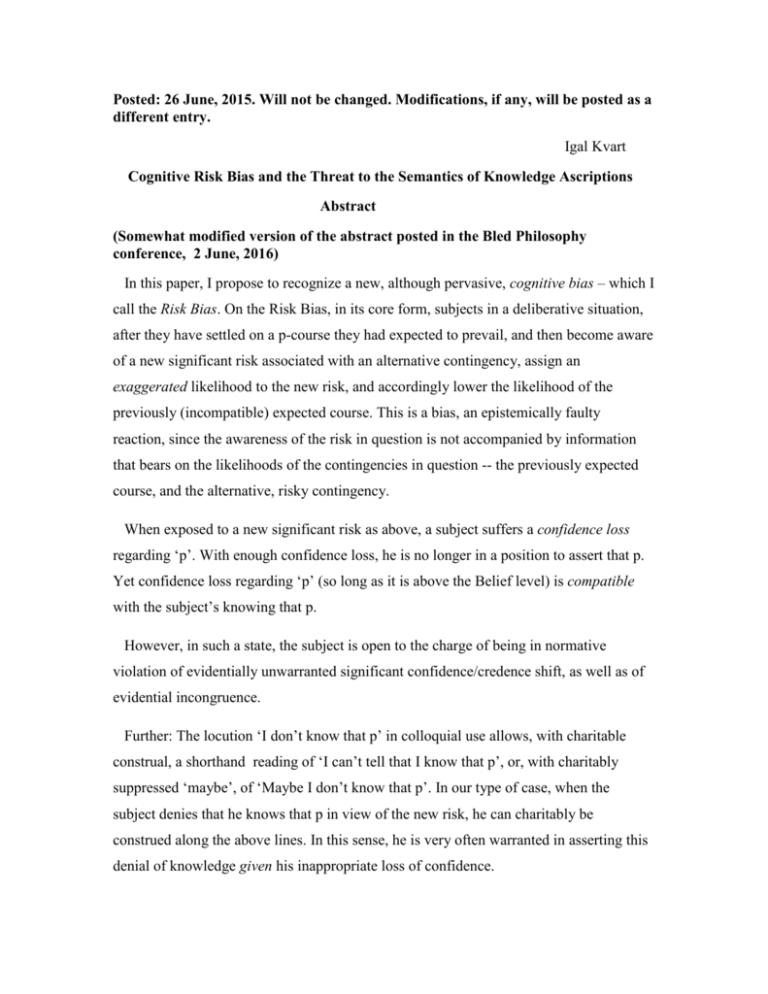
Posted: 26 June, 2015. Will not be changed. Modifications, if any, will be posted as a different entry. Igal Kvart Cognitive Risk Bias and the Threat to the Semantics of Knowledge Ascriptions Abstract (Somewhat modified version of the abstract posted in the Bled Philosophy conference, 2 June, 2016) In this paper, I propose to recognize a new, although pervasive, cognitive bias – which I call the Risk Bias. On the Risk Bias, in its core form, subjects in a deliberative situation, after they have settled on a p-course they had expected to prevail, and then become aware of a new significant risk associated with an alternative contingency, assign an exaggerated likelihood to the new risk, and accordingly lower the likelihood of the previously (incompatible) expected course. This is a bias, an epistemically faulty reaction, since the awareness of the risk in question is not accompanied by information that bears on the likelihoods of the contingencies in question -- the previously expected course, and the alternative, risky contingency. When exposed to a new significant risk as above, a subject suffers a confidence loss regarding ‘p’. With enough confidence loss, he is no longer in a position to assert that p. Yet confidence loss regarding ‘p’ (so long as it is above the Belief level) is compatible with the subject’s knowing that p. However, in such a state, the subject is open to the charge of being in normative violation of evidentially unwarranted significant confidence/credence shift, as well as of evidential incongruence. Further: The locution ‘I don’t know that p’ in colloquial use allows, with charitable construal, a shorthand reading of ‘I can’t tell that I know that p’, or, with charitably suppressed ‘maybe’, of ‘Maybe I don’t know that p’. In our type of case, when the subject denies that he knows that p in view of the new risk, he can charitably be construed along the above lines. In this sense, he is very often warranted in asserting this denial of knowledge given his inappropriate loss of confidence. This cognitive bias thus explains the puzzling aspects of cases akin to the Bank case. The subject, when becoming aware of a risk of which he previously has been unaware, loses confidence in the previously expected course due to the epistemically unwarranted exaggerated likelihood he now assigns to the new risk. Consequently, the subject is appropriately, from his perspective, no longer in a position to assert what he previously has asserted, and consequently no longer in a position to act on it, and, furthermore, is in a position to assert the denial of the self knowledge-ascription. In view of this, the introduction of accounts of Pragmatic Intrusions into the semantics of ‘know’, characteristic of Epistemic Contextualism, SSI, and others, are unwarranted and not called for regarding the purpose of dealing with the family of examples akin to the bank case.

